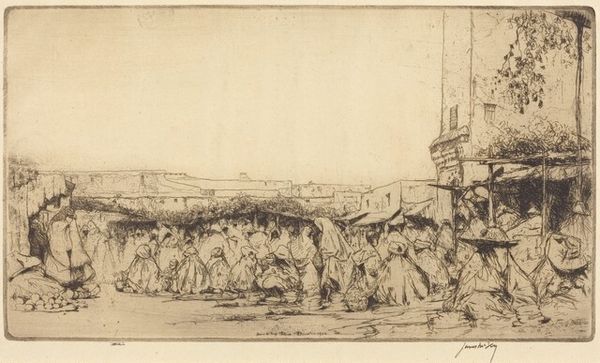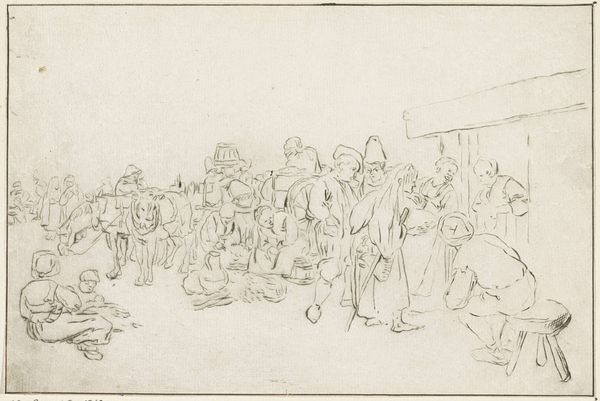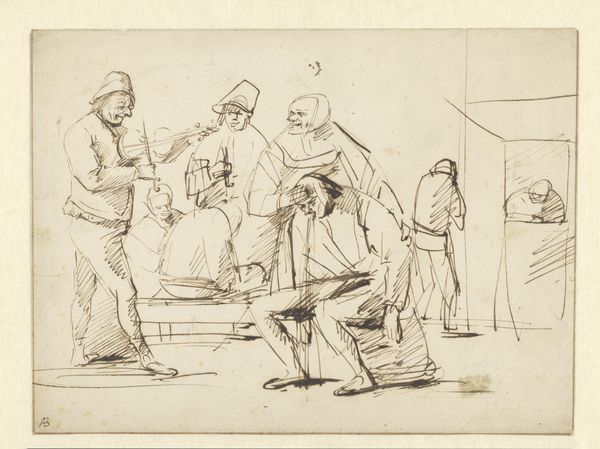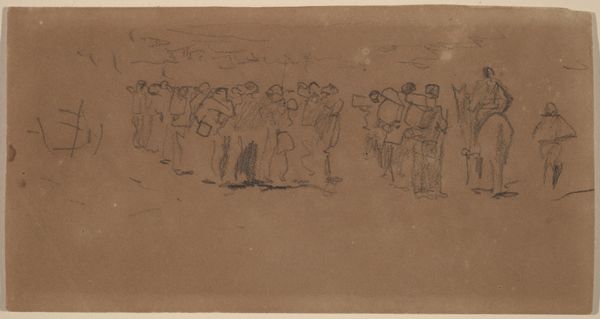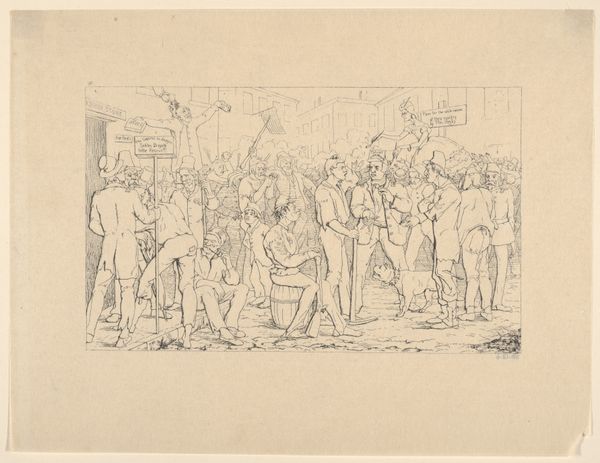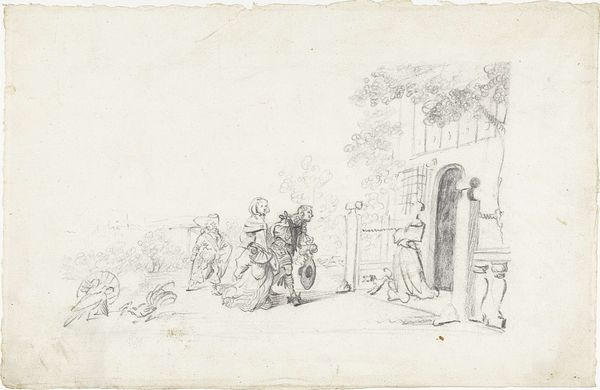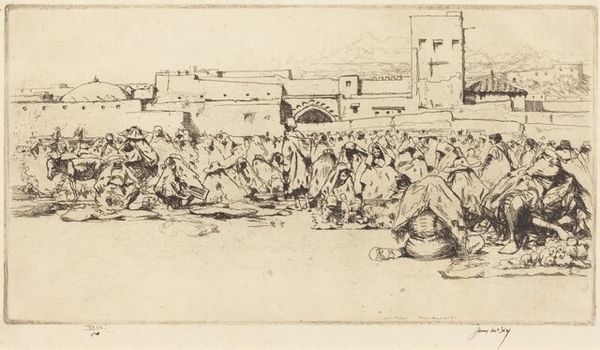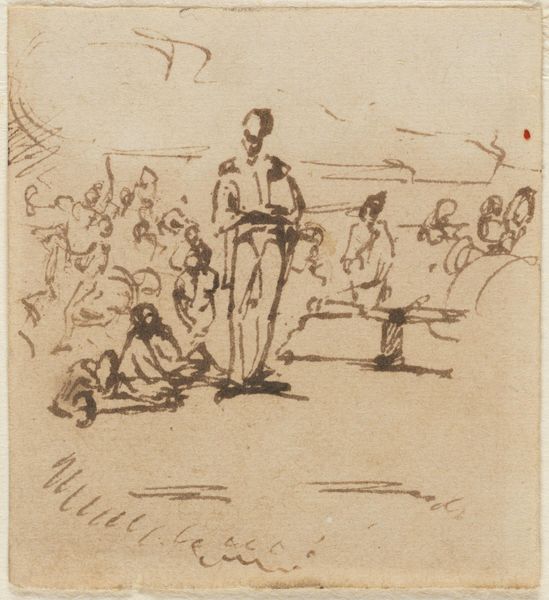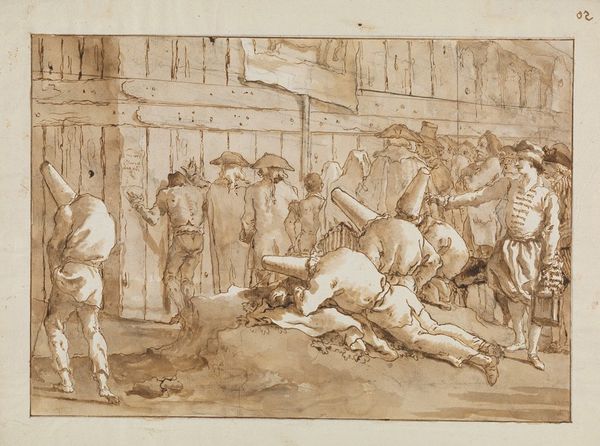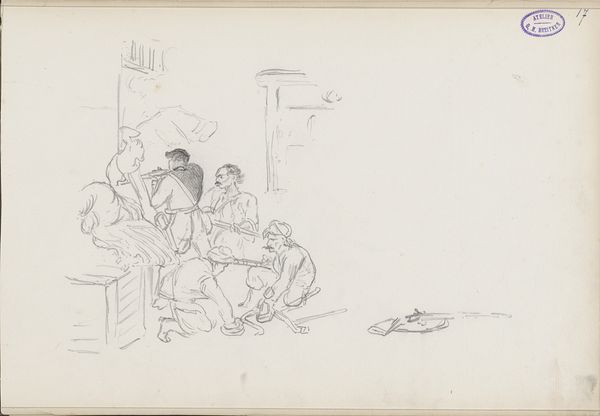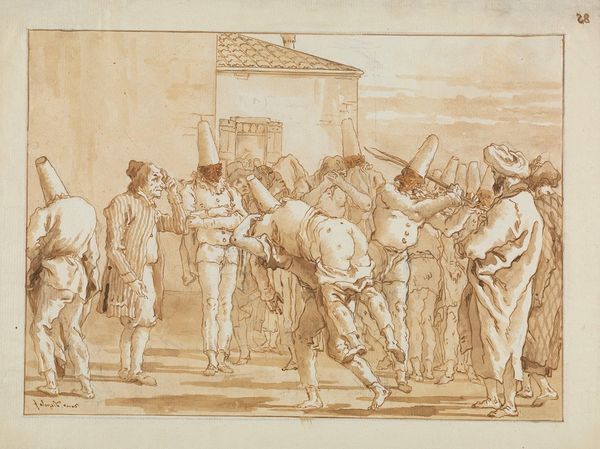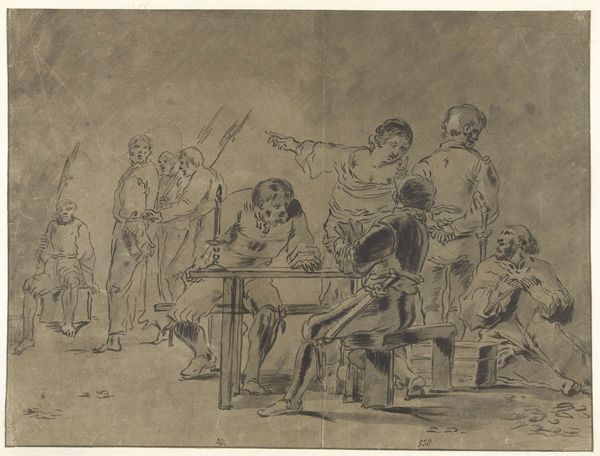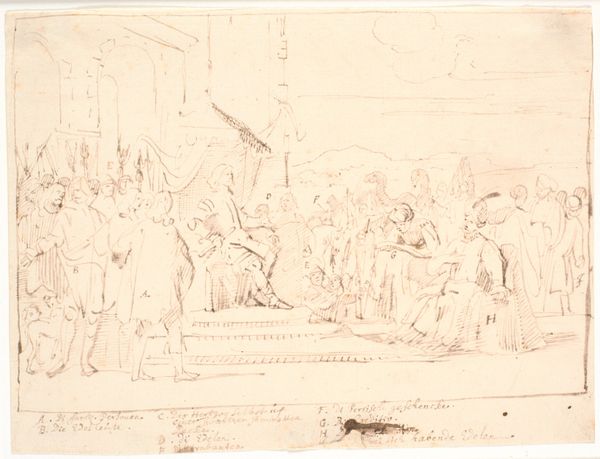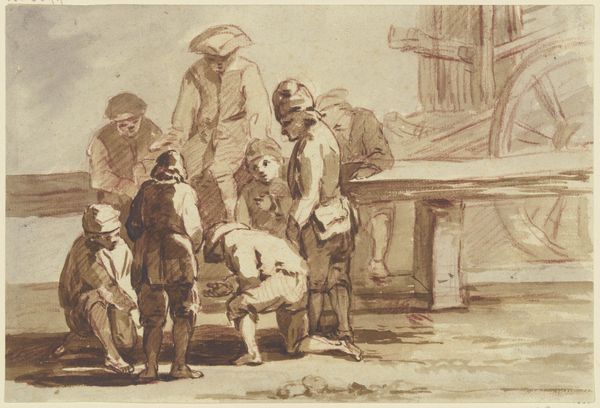
drawing, ink, pen
#
drawing
#
mechanical pen drawing
#
pen sketch
#
landscape
#
personal sketchbook
#
ink
#
sketchwork
#
ink drawing experimentation
#
pen-ink sketch
#
orientalism
#
pen work
#
sketchbook drawing
#
pen
#
genre-painting
#
storyboard and sketchbook work
#
sketchbook art
Dimensions: overall (approximate): 22 x 33.9 cm (8 11/16 x 13 3/8 in.)
Copyright: National Gallery of Art: CC0 1.0
Editor: This is James McBey's "Grain Market, Tetouan" from 1913, created with pen and ink. It feels almost like a snapshot, a quickly captured scene of everyday life. What stands out to you? Curator: What interests me is McBey’s engagement with Orientalism not through grand canvases but through this rapid, seemingly casual, drawing. It highlights the colonial gaze's interest in labor and trade. What can a pen and ink sketch tell us about the social realities of the grain market, about the movement of goods, bodies, and perhaps, capital? Editor: That's a really interesting way to look at it. I hadn't considered the choice of materials as part of the statement. Does the sketch medium downplay the subject in some way? Curator: Exactly. Is McBey emphasizing the immediacy of his experience, positioning himself as a detached observer merely documenting an exotic scene for Western consumption? Consider also how the accessibility of pen and ink aligns with sketchbook practices. Does this framing normalize a casual consumption of Moroccan labor? What kind of value is attached to that labor then and now? Editor: I see your point. It almost makes it feel like a commodity itself, reduced to a quick sketch. Curator: Precisely. By looking at the production—the sketch itself—we can reveal how art can participate in constructing, and perhaps, reinforcing, power dynamics. It asks us to consider the material reality of artmaking within a complex network of global exchange. Editor: I’ve definitely learned a lot from considering the materials and their implications. Thanks for helping me unpack all of this. Curator: My pleasure. Looking at the means of production is a rewarding and critical way of understanding a work of art and its place in society.
Comments
No comments
Be the first to comment and join the conversation on the ultimate creative platform.
